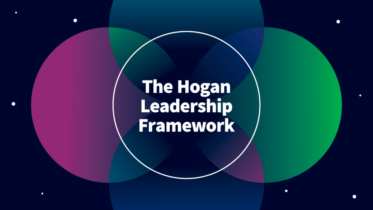If the events of 2024 were any indication, the year 2025 will bring challenges with the potential to disrupt or destroy organizations. Economic tumult, natural disasters, political unrest, civil and international wars, human rights violations, and uncertainty about the future—all these are the environment in which organizations and workers do business every day.
People always have been and always will be any organization’s most important resources. Because of today’s volatile work climate, it is more important than ever for organizations to remain focused on objective, scientifically validated personality data when making decisions about people.
These forecasted talent challenges inform how the most effective organizations will use personality assessment in 2025.
Pervasive Use of AI Technology
The pervasiveness of AI-driven tools is likely to continue as tech companies roll out new features at a rapid pace. However, despite indications that organizations are investing in and prioritizing AI, employee adoption of AI tech is slow. “AI is much more than just a buzzword, but a lot of users aren’t seeing the value yet,” said Allison Howell, MS, vice president of market innovation at Hogan Assessments.
Using AI in talent management can open companies up to risk, especially in hiring decisions. AI is ripe for bias, and savvy users are quickly learning how to exploit AI tools. As well, candidates can tell when potential employers use AI to screen applicants, which can harm the employer brand if the process feels impersonal or unfair.
Howell predicted that conversation about AI use will include the enormous environmental cost of AI. “Companies may be motivated to add AI tools to their platforms, but unnecessary AI is wasteful and harmful to the planet,” she said.
Workforce Disruption
In 2025, organizations will likely need to address bias and unfairness in the workplace to leverage talent across generations, geographies, and other demographics. Executive teams need to make efforts to stay connected to employees or risk further disengaging their workforce.
People are facing complex challenges in navigating everyday life, including high inflation, stagnating pay, unaffordable real estate and healthcare costs, strict immigration and labor policies, and an overall lack of social support. Meanwhile, organizations are walking back diversity, equity, inclusion, and belonging (DEIB) policies and other protections that make workers feel safe and supported at work. Leaders must understand that their organizations are only as strong as their people—and people are struggling right now.
Leading Distributed, Disengaged Teams
The great resignation, great reshuffling, quiet quitting, and mass layoffs have left a legacy of employee disengagement. Organizations must prioritize the selection and development of leaders who are skilled in building and maintaining high-performing hybrid, remote, and global teams in 2025.
Ryne Sherman, PhD, chief science officer at Hogan Assessments, observed that culture, accountability, and recognition are keys to fostering engagement in hybrid or remote settings. “Values are more difficult to display in remote settings,” he said. “Likewise, when people are out of sight, performance accountability can sometimes be out of mind.” In contrast, Sherman said that effective leaders of remote teams habitually show appreciation: “Leaders need to build in recognition for work well done.”
Succession and Development Crises
Ongoing C-suite burnout and turnover contributes to rapidly shifting executive demographics. Many in leadership roles are leaving a younger, less experienced generation to take the reins. Organizations need to consider their succession planning to ensure continuity under increased executive pressure and scrutiny. This includes providing appropriate development opportunities to high-potential talent so that successors are ready when the time comes.
Personality assessment provides support for expanded development initiatives at every job level, from assessment-based leadership coaching to skills development and reskilling. “Assessment-based coaching is especially important for leaders because of the increased complexity of leading teams in a VUCA [volatile, uncertain, complex, and ambiguous] environment,” Howell said. She pointed out that assessment helps identify how best to develop individual leaders’ competencies that are needed for the future. “The job market is tough, so retention is key.”
Talent professionals may have endured more transformation than people in any other career since 2020. This emphasizes the need to access and use reliable, predictive data to mitigate bias, promote inclusion and well-being, equip leaders to build effective teams, and nurture executive development. Data-driven talent insights from scientifically validated personality assessment tools are more crucial than ever in a human resources landscape that never stops changing.
This article was originally posted on the Hogan blog.




